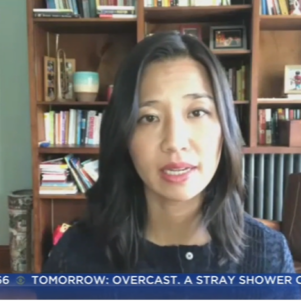Pick-Your-Own-Prison Gender-Identity Bill Approved; What Will Governor Baker Do?
By Evan Lips | April 5, 2018, 16:53 EDT
 Michelle Kosilek, convicted in 1990 murder of then-wife, would likely receive state-funded gender reassignment surgery under Senate proposal.
Michelle Kosilek, convicted in 1990 murder of then-wife, would likely receive state-funded gender reassignment surgery under Senate proposal.
BOSTON — The sweeping criminal justice reform package that cleared the House and Senate chambers this week now awaits Massachusetts Governor Charlie Baker’s signature, and with the stroke of a pen, state inmates will soon be able to dictate the accommodations of their incarcerations according to the gender they choose to identify with.
The language stipulates that convicts will be “housed in a correctional facility with inmates with the same gender identity; provided, that the placement shall be consistent with the prisoner’s request.”
The final language does, however, provide more authority to corrections officials than the original language first approved by the Senate in November. The final version of the bill allows inmates to choose their gender-related accommodations “unless the commissioner, the sheriff or a designee of the commissioner or sheriff certifies in writing that the particular placement would not ensure the prisoner’s health or safety or that the placement would present management or security problems.”
The policy could trigger various legal challenges, such as the saga that has surrounded a convicted murderer named Michelle Kosilek — a biological male who changed his name from Robert after transitioning into a woman — and later sued the state Department of Corrections in an effort to secure a taxpayer-funded sex change operation. Kosilek initially won when a judge ruled in Kosilek’s favor, but the department successfully appealed the decision, and most recently the United States Supreme Court declined to hear the case.
According to the finished bill, inmates like Kosilek will not have automatic access to a state-funded sex change procedure, but will be “provided with access to commissary items, clothing, programming, educational materials and personal property that is consistent with the prisoner’s gender identity.”
Physical searches of prisoners will also be conducted by “an officer of the same gender identity if the search requires an inmate to remove all clothing or includes a visual inspection of the anal cavity or genitals, provided, however, that the officer’s gender identity shall be consistent with the prisoner’s request.”
The legislation also establishes a “special commission to study the health and safety of lesbian, gay, bisexual, transgender, queer, and intersex prisoners” in order to “evaluate current access to appropriate healthcare services and health outcomes.”
The eight-member commission will have access to all state-run prisons and correctional centers.
The bill also stipulates that the commission will be responsible for determining the “number of prisoners who have been denied diagnoses of gender dysphoria or transition-related healthcare” in addition to the “number of denied requests for an alternative housing or facility placement by prisoners in connection with their gender identity and the reasons for the denial.”
The initial House version of the bill did not include any language related to gender-identity accommodations.
Baker has not publicly indicated whether he plans to sign the bill into law or sending it back to lawmakers.
The governor noted to State House News Service that the criminal justice reform bill has “a lot in it,” and said he expects to make his positions known next week after he gets recommendations from advisers.
“We’ve got asks out to our agencies to put together briefings and come talk to us about what’s in it, and we’ll have a lot to say about it next week, but I’m going to reserve comment on it until I actually get some feedback from my own folks about the bill in its entirety,” Baker said Thursday.











